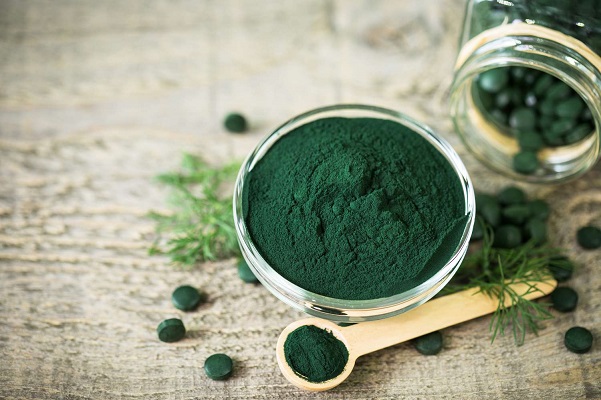On This Page
Overview
For hundreds of years, honey has held a particular place in home remedies. It is regarded as one of nature’s best cures. Honey also has various health advantages, including the ability to relieve coughs and its antioxidant characteristics. The abilities of honey can be used in a variety of ways.
Honey has just too many delightful surprises in it like a treasure chest therefore it is regarded as a superfood also. It has bioactive properties that give honey its therapeutic properties. There are other additional health advantages as well.
Synonyms of Honey
- Apis Mellifera
- Buckwheat Honey
- Honeydew Honey
- Madhu
- Honig
- Manuka Honey
- Medihoney
Nutritional Facts of Honey
| Energy: | 304 kcal |
| Carbohydrates: | 82.4 g |
| Sugars: | 82.12 g |
| Dietary fiber: | 0.2 g |
| Fat: | 0 g |
| Protein: | 0.3 g |
Phytochemical Constituents of Honey
- Apigenin
- Pinocembrin
- Kaempferol
- Quercetin
- Galangin
- Chrysin
- Hesperetin
- Ellagic
- Caffeic
- P-coumaric and ferulic acids
Therapeutic Uses of Honey
- For Cough
One of the finest natural treatments for both dry and wet coughs is honey. Additionally, studies have indicated that consuming a tablespoon of honey might soothe sore throats. Honey is the favorite natural cough cure, particularly for children because it helps to alleviate nocturnal cough, enabling restful sleep.
- Aids in Asthma Relief
Home treatment frequently uses honey to cure fever, coughs, and inflammation. Patients with asthma benefit from its calming effects. The amount of saliva produced rises by honey. A cough may lessen as a result of saliva lubricating the airways and reducing throat irritation. Additionally, due to its anti-inflammatory characteristics, it may lessen asthmatic airway edema.
- Wound Healing
Wounds can also be treated with raw honey. This characteristic results from honey’s antimicrobial properties. Studies demonstrate that it is a highly effective treatment for burns, wounds, and skin conditions.
- Bacterial and fungal infections
Strong antibacterial and antifungal properties exist in honey. Consequently, it helps treat bacterial skin diseases such as erysipelas, impetigo, fungal infections, folliculitis, furuncles, and carbuncles.
Additionally helpful for candida infection (Candidiasis).
- Helps to Cure Sinus
One or more of the common causes of sinus issues is pollution and dust. Small chambers called sinuses create mucus to shield the respiratory system from allergies and infections. The virus tends to clog the sinus if you have an infection. Inflammation can be reduced by honey’s inherent antibacterial and antiseptic characteristics. Additionally, it eases throat discomfort and stops coughing. Additionally, it boosts the immune system, further preventing sinus infections.
Home Remedies Honey
- Reduces Sore Throat, Nausea, and Cold
Honey is a typical cold and sore throat treatment in most Indian homes. Its antibacterial qualities can lessen colds and throat infections. It is also known to successfully treat motion sickness. Simply consume a solution of 1 tablespoon each of honey and ginger in water.
- Athlete’s Foot
Honey is renowned for its therapeutic qualities. As an antiseptic, it is an excellent natural treatment for fungus infections. It can kill germs and fungi since hydrogen peroxide is naturally present in it.
Athletes’ foot fungus can be reduced with the use of honey. It should be applied with a teaspoon and left on for 30 minutes. For a quicker recovery, you can perform this twice daily.
- For Sinus
Honey can relieve nasal congestion, irritated throats, and sinus congestion caused by too much mucus.
Drink a teaspoon of honey and a teaspoon of lemon juice twice a day to relieve sinus discomfort.
- Anxiety
You don’t always need to rely on prescription medications if you want to lessen or lower your levels of stress. To your cereal, add some pure honey.
- Eczema
For eczema treatment, honey can be combined with several juices, including lemon juice and apple cider vinegar. Combine two tablespoons of apple cider vinegar and one teaspoon of honey and lemon juice in warm water. You should take this mixture first thing in the morning to achieve the best outcomes.

Have A Health Issue?
Consult Online
- Dr. Sahil Gupta (B.A.M.S., M.H.A.)
Ayurvedic Allergy Specialist
CEO & Founder of IAFA®
Ayurvedic Aspects of Honey
One of the most significant cures used in Ayurveda is honey, also called Madhu in the ayurvedic literature. Honey is applied both internally and externally in Ayurveda. The most common conditions are used to treat rare eye disorders, cough, thirst, phlegm, hiccups, leprosy, diabetes, obesity, worm infestation, vomiting, asthma, diarrhea, and wound healing. Additionally, it is known to lessen the aggravated Kapha dosha.
The ancient Ayurvedic text Ashtangahrudaya mentions the value of honey as a newborn baby’s ancient immunization and general wellness measure.
At IAFA®, madhu (medicated honey) is also used in a special mixture to boost immunity. All the natural techniques employed by IAFA® work to activate the immune system. The atural immunization method of IAFA® boosts the immune system’s defenses against all infectious agents, protecting the child’s safety and wellbeing.
Daily Dose: A maximum of 20-50 ml of honey per day is advised; anything more than that is not recommended.
Side Effects of Honey
- May Lead To Weight Gain
Honey has 64 calories per tablespoon (21 grams). It has a fair amount of calories. Consuming it in excess can result in weight gain.
- Allergies
Consuming honey should be done with caution if you have a honey allergy. Although they are rare, honey allergies do exist. The honey’s bee pollen content could be to blame. Bee digestive enzymes and pollen are combined to create bee pollen. It could result in a serious allergic reaction.
- Stomach Cramps
Consistently eating too much honey can result in cramping in the stomach. Eliminating all of the honey in your system is the only method to cure this stomach problem. So, if you do consume honey regularly, don’t overdo it.
- Constipation
Constipation is another side effect of consuming excessive amounts of honey, and the best approach to prevent it is to follow the suggested serving sizes. A maximum of 50ml of honey may be consumed per day. Any more than that could result in constipation.
Conclusion
Honey is renowned for being beneficial to health in many ways. Honey has several health benefits, including aiding in weight loss and fostering good skin and hair. Within a few days, you will experience benefits from routinely ingesting luke’s warm water with a scoop of honey in the morning. Along with benefits it has side effects too so be sure to consume it in moderation in case you face any allergy honey allergy you should Consult Dr. Gupta at IAFA® he uses herbs to prepare medicines for all types of allergies.








